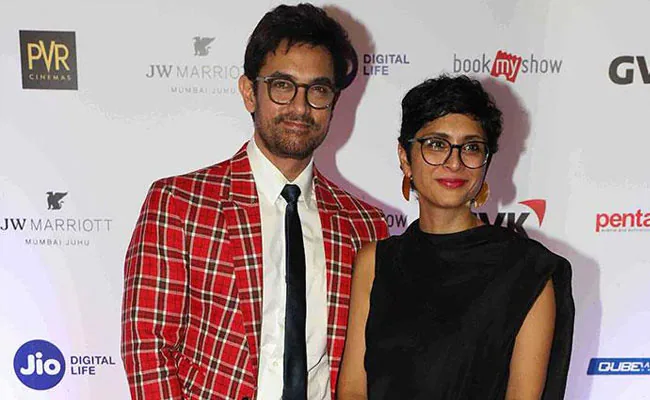PUCL Statement on Repression on FTII students in Goa “Government’s action has damaged democratic credential and tarnished image of India”

Tags: Amir Khan, Kiran Rao, Intolerance, Dissent, Expression, Democracy, Defence Minister, Artists, Scientists, Armed forces, Awards
Related Issue: Right to freedom of expression, Right of association, Right of affiliation, Right to Dissent, Right to Liberty, Right to Dignity
The debate on intolerance has been resurrected once again in the wake of the actor Amir Khan disclosing that his wife (a Hindu) was so upset by the atmosphere of intolerance in the country that she had aired the idea, during a personal conversation, that they should leave India. All sorts of comments are being made against Khan insinuating that his statement shows his ingratitude to India and raising questions about his loyalty. Earlier, motives were imputed to the artists and scientists who had returned their awards in protest against the atmosphere of intolerance in the country. The Defence Minister Parrikar had publicly stated that retired Armed Forces personnel returning their awards in protest against the inadequacy of the provision of the OROP must prove that their act is not politically motivated. The fury generated by the disclosure of Amir Khan about his wife’s fear and suggestion to leave the country is itself an irrefutable evidence of unacceptable level of intolerance that has surfaced in the society in which we live. Kiran Khan or Amir Khan do not hold any office in the State and are common citizens despite their celebrity status and are free to feel as anyone of us and give expression to their feelings, within the bounds of the law. Is there a law in the country to tell the citizens how they should feel and to make them answerable for what they feel? A tolerant and humane society would have rushed to them to allay their fears and anxiety and to reassure them that their fears were unfounded and they had nothing to fear. Instead, they are being humiliated for something which is absolutely subjective and for which they are not answerable. The same is true of the artistes and scientists returning their awards in protest against the atmosphere of intolerance. As citizens of India, they have a right to be for or against a party or ideology, a political leader or a policy of the government. They have the right to protest on an issue of their choice, alone or in a group, and at a time of their choice. To raise the question of their motive or ask why they protest now when they did not protest at some other time or on some other issue is itself an act of intolerance. They, like other citizens, are not answerable for their feelings, belief or mode of protest unless it is beyond the bounds of the law. The State has the right to refute their allegation and convince the people that the protesters are wrong, but not to let loose its horde of hoodlums to accuse those protesting or expressing their feelings of disloyalty to the country or to call them traitors or to ask them to quit the country, as if India is the fiefdom of the ruling party. If anything, the conduct of the members of the BJP including its Ministers have provided not only a clinching proof of intolerance but of alarming contempt for democracy. It is important to recognise that intolerance as an attitude, behavior and response invariably leads to hatred, prejudice, hostility and violence. Persistent intolerance makes people being attacked because of their differences – socio-cultural, religious, caste, ethnic, sexual and in the present circumstances, political too – not only vulnerable to physical attacks and verbal assaults but also to live in fear with bottled up feelings of anger, frustration, rejection, subordination and exclusion. In effect, intolerance undermines dignity, freedom, equity, equality, fraternity, creativity and Human Rights. `Manufactured’ or stoked intolerance by majoritarian forces is one of the biggest threats to Indian democracy today. All that is required is being open or willing to `listen’ to expressions of fear of rising intolerance shared by citizens and to assuage their apprehensions and rebuild confidence. Instead, responding with invectives, abuses and demanding proof of loyalty only makes the situation more dangerous. All democratic forces across India therefore need to come together to oppose rising intolerance and assert that tolerance, co-existence and mutual respect for all castes, creeds, religions and other affinities – and we should now add, political opinions too – are the bed rock of our democracy which we will not allow to be threatened, rendered apart or destroyed.